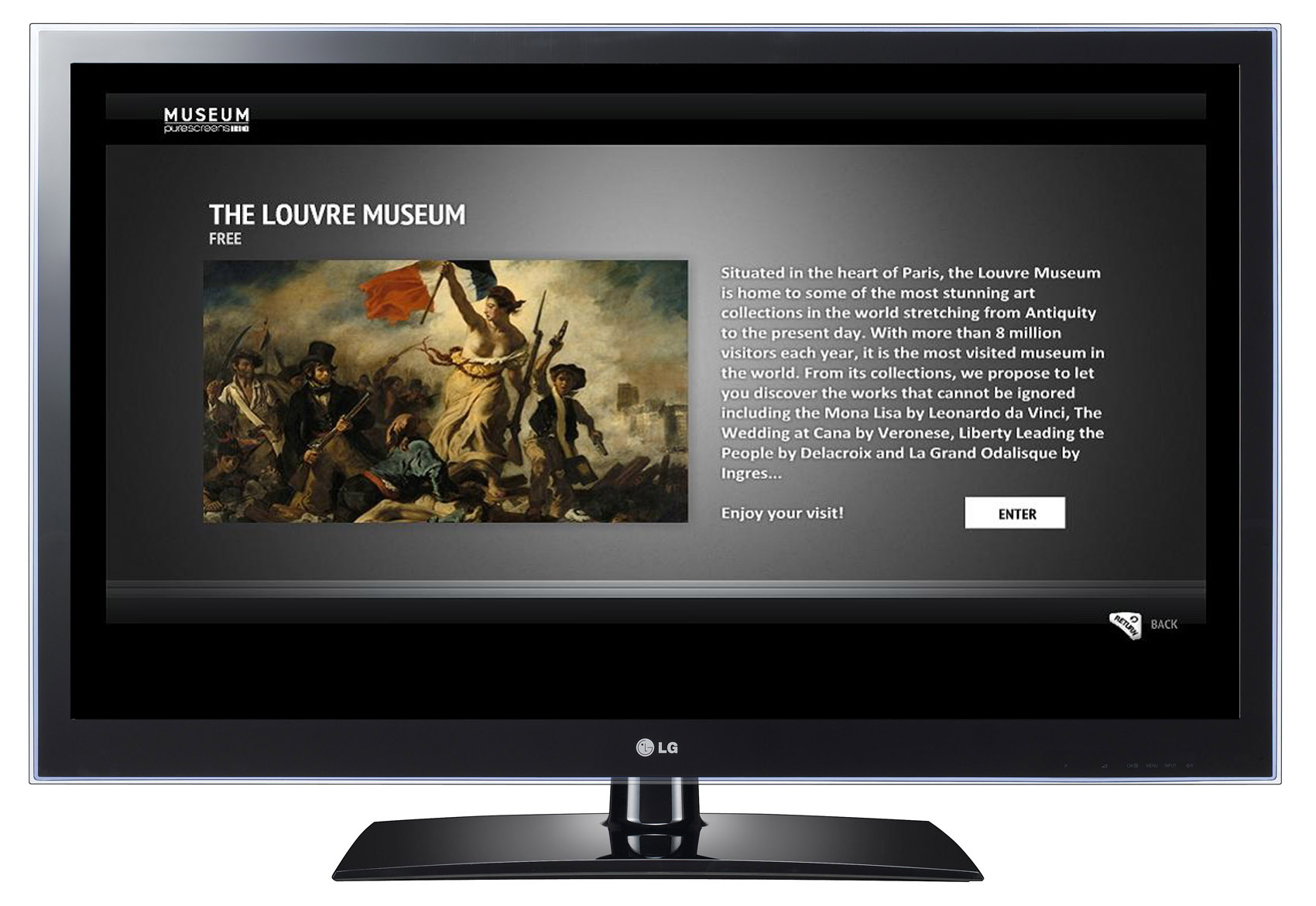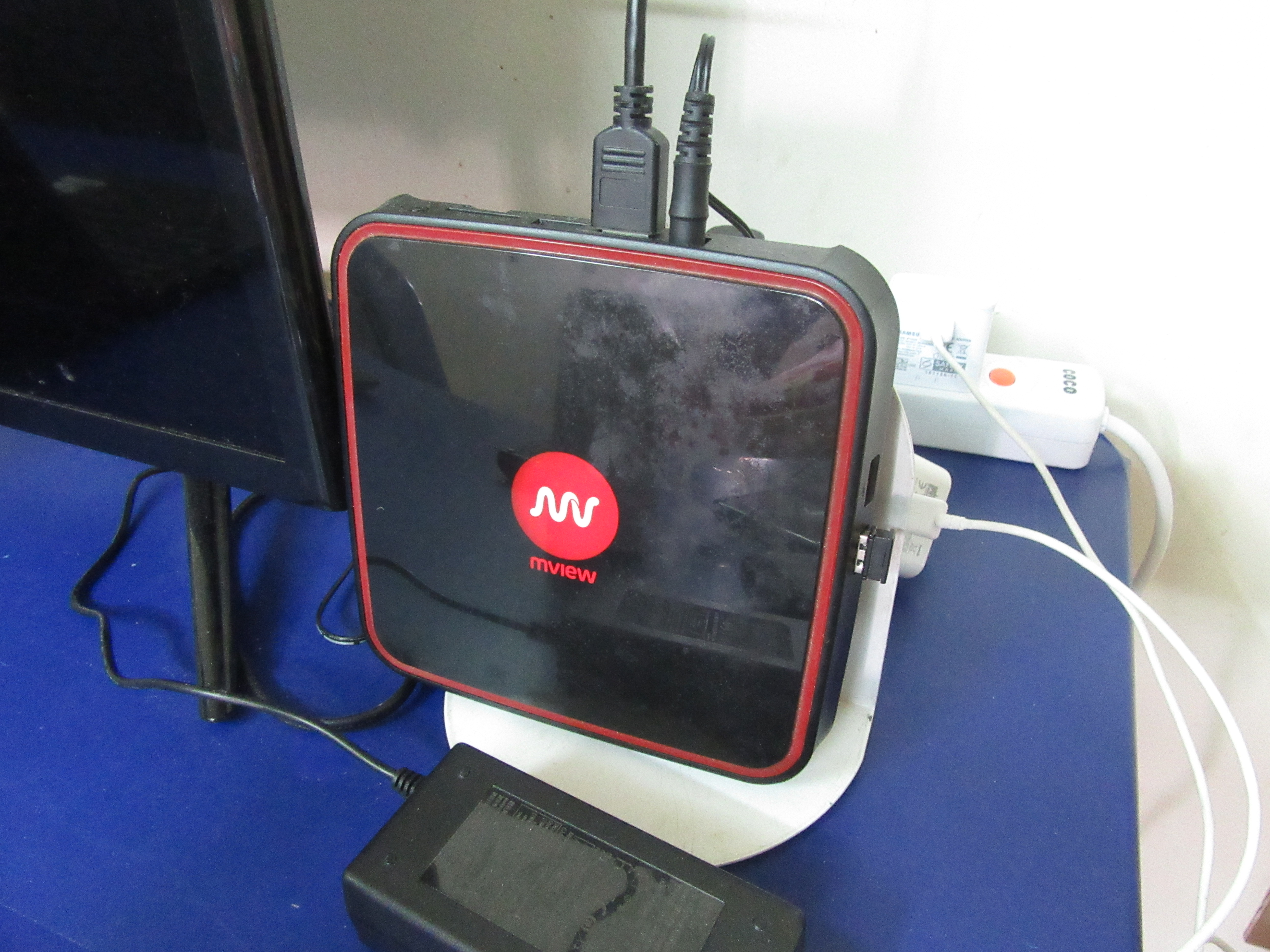|
HbbTV
Hybrid Broadcast Broadband TV (HbbTV) is both an industry standard ( European Telecommunications Standards Institute (ETSI) TS 102 796) and promotional initiative for hybrid digital television to harmonise the broadcast, Internet Protocol Television (IPTV), and broadband delivery of entertainment to the end consumer through connected TVs (smart TVs) and set-top boxes. The HbbTV Association, comprising digital broadcasting and Internet industry companies, has established a standard for the delivery of broadcast TV and broadband TV to the home, through a single user interface, creating an open platform as an alternative to proprietary technologies. Products and services using the HbbTV standard can operate over different broadcasting technologies, such as satellite, cable, or terrestrial networks. HbbTV can show digital television content from a number of different sources including traditional broadcast TV, Internet, and connected devices in the home. To watch hybrid digital TV, ... [...More Info...] [...Related Items...] OR: [Wikipedia] [Google] [Baidu] |
Open IPTV Forum
The Open IPTV Forum (OIPF) was a non-profit consortium and standards organization focused on defining and publishing open for end-to-end Internet Protocol television (IPTV) standards. It was later joined by several others. Since June 2014, OIPF has been part of the Hybrid Broadcast Broadband TV association, a similar industry organisation for hybrid broadcast and broadband TV services formed in 2009, which worked closely with OIPF on browser and media specifications for network-connected televisions and set-top boxes. History In March 2007 AT&T, Ericsson, Orange, Panasonic, Philips, Samsung, Siemens, Sony and Telecom Italia TIM S.p.A. (formerly Telecom Italia S.p.A.) is an Italian telecommunications company with headquarters in Rome, Milan, and Naples (with the Telecom Italia Tower), which provides fixed, public and mobile telephony, and DSL data services. It is ... formed the group. In September 2010 the consortium released the second version of their specification. ... [...More Info...] [...Related Items...] OR: [Wikipedia] [Google] [Baidu] |
France Télévisions
France Télévisions (; stylized since 2018 as ) is the French national public television broadcaster. It is a state-owned company formed from the integration of the public television channels France 2 (formerly Antenne 2) and France 3 (formerly France Régions 3), later joined by the legally independent channels France 4 (formerly Festival), France 5 (formerly La Cinquième) and France Info. France Télévisions is currently funded by the French Treasury and the revenue from commercial advertising. The new law on public broadcasting will phase out commercial advertising on the public television channels (at first in the evening, then gradually throughout the day). France Télévisions is a supporter of the Hybrid Broadcast Broadband TV (HbbTV) initiative that is promoting and establishing an open European standard for hybrid set-top boxes for the reception of broadcast TV and broadband multimedia applications with a single user interface, and has selected HbbTV for it ... [...More Info...] [...Related Items...] OR: [Wikipedia] [Google] [Baidu] |
Smart TV
A smart TV, also known as a connected TV (CTV or, rarely, CoTV), is a traditional television set with integrated Internet and interactive Web 2.0 features that allow users to stream music and videos, browse the internet, and view photos. Smart TVs are a technological convergence of computers, televisions, and digital media players. Besides the traditional functions of television sets provided through traditional broadcasting media, these devices can provide access to over-the-top media services such as streaming television and internet radio, along with home networking access. Smart TV is different from Internet TV, IPTV, or streaming television. ''Internet TV'' refers to receiving television content over the Internet instead of traditional systems such as terrestrial, cable, and satellite, regardless of how the Internet is delivered. ''IPTV'' is one of the Internet television technology standards for use by television broadcasters. ''Streaming television'' is a term used for p ... [...More Info...] [...Related Items...] OR: [Wikipedia] [Google] [Baidu] |
IPTV
Internet Protocol television (IPTV), also called TV over broadband, is the service delivery of television over Internet Protocol (IP) networks. Usually sold and run by a Telephone company, telecom provider, it consists of broadcast live television that is streamed over the Internet (multicast) — in contrast to delivery through traditional Terrestrial television, terrestrial, Satellite television, satellite, and Cable television, cable transmission formats — as well as video on demand services for watching or replaying content (unicast). IPTV broadcasts started gaining usage during the 2000s alongside the rising use of broadband-based internet connections. It is often provided bundled with internet access services by ISPs to subscribers and runs in a closed network. IPTV normally requires the use of a set-top box, which receives the encoded television content in the MPEG transport stream via IP multicast, and converts the Data packet, packets to be watched on a TV set or ot ... [...More Info...] [...Related Items...] OR: [Wikipedia] [Google] [Baidu] |
Smart TV
A smart TV, also known as a connected TV (CTV or, rarely, CoTV), is a traditional television set with integrated Internet and interactive Web 2.0 features that allow users to stream music and videos, browse the internet, and view photos. Smart TVs are a technological convergence of computers, televisions, and digital media players. Besides the traditional functions of television sets provided through traditional broadcasting media, these devices can provide access to over-the-top media services such as streaming television and internet radio, along with home networking access. Smart TV is different from Internet TV, IPTV, or streaming television. ''Internet TV'' refers to receiving television content over the Internet instead of traditional systems such as terrestrial, cable, and satellite, regardless of how the Internet is delivered. ''IPTV'' is one of the Internet television technology standards for use by television broadcasters. ''Streaming television'' is a term used for p ... [...More Info...] [...Related Items...] OR: [Wikipedia] [Google] [Baidu] |
Internet Protocol Television
Internet Protocol television (IPTV), also called TV over broadband, is the service delivery of television over Internet Protocol (IP) networks. Usually sold and run by a telecom provider, it consists of broadcast live television that is streamed over the Internet ( multicast) — in contrast to delivery through traditional terrestrial, satellite, and cable transmission formats — as well as video on demand services for watching or replaying content ( unicast). IPTV broadcasts started gaining usage during the 2000s alongside the rising use of broadband-based internet connections. It is often provided bundled with internet access services by ISPs to subscribers and runs in a closed network. IPTV normally requires the use of a set-top box, which receives the encoded television content in the MPEG transport stream via IP multicast, and converts the packets to be watched on a TV set or other kind of display. It is distinct from over-the-top (OTT) services, which are based ... [...More Info...] [...Related Items...] OR: [Wikipedia] [Google] [Baidu] |
Set-top Box
A set-top box (STB), also known as a cable converter box, cable box, receiver, or simply box, and historically television decoder or a converter, is an information appliance device that generally contains a Tuner (radio)#Television, TV tuner input and displays output to a television set, turning the source signal into media (communications), content in a form that can then be displayed on the television screen or other display device. It is designed to be placed alongside or "on top" (hence the name) of a television set. Set-top boxes are used in cable television, satellite television, terrestrial television and Internet Protocol television systems, as well as other uses such as digital media players ("streaming boxes"). Alternatives to set-top boxes are the smaller dongles, and television sets with built-in TV tuners. TV signal sources The signal source might be an Ethernet cable, a satellite dish, a coaxial cable (see cable television), a telephone line (including Digital subs ... [...More Info...] [...Related Items...] OR: [Wikipedia] [Google] [Baidu] |
Astra (satellite)
Astra is the brand name for a number of geostationary communication satellites, both individually and as a group, which are owned and operated by SES, a global satellite operator based in Betzdorf, in eastern Luxembourg. The name is also used to describe the pan-European broadcasting system provided by these satellites, the channels carried on them, and even the reception equipment. At the time of the launch of the first Astra satellite, Astra 1A in 1988, the satellite's operator was known as Société Européenne des Satellites ("European Satellite Company"). In 2001 SES Astra, a newly formed subsidiary of SES, operated the Astra satellites and in September 2011, SES Astra was consolidated back into the parent company, which by this time also operated other satellite families such as AMC, and NSS. Astra satellites broadcast 2,600 digital television channels (675 in high definition) via five main satellite orbital positions to households across Asia, Australia, Af ... [...More Info...] [...Related Items...] OR: [Wikipedia] [Google] [Baidu] |
Broadcast
Broadcasting is the data distribution, distribution of sound, audio audiovisual content to dispersed audiences via a electronic medium (communication), mass communications medium, typically one using the electromagnetic spectrum (radio waves), in a :wikt:one-to-many, one-to-many model. Broadcasting began with AM radio, which came into popular use around 1920 with the spread of vacuum tube radio transmitters and radio receiver, receivers. Before this, most implementations of electronic communication (early radio, telephone, and telegraph) were wikt:one-to-one, one-to-one, with the message intended for a single recipient. The term ''broadcasting'' evolved from its use as the agricultural method of sowing seeds in a field by casting them broadly about. It was later adopted for describing the widespread distribution of information by printed materials or by telegraph. Examples applying it to "one-to-many" radio transmissions of an individual station to multiple listeners appeared as ... [...More Info...] [...Related Items...] OR: [Wikipedia] [Google] [Baidu] |
International Broadcasting Convention
International Broadcasting Convention, more commonly known by its initials IBC, is an annual trade show, held in September at the RAI Exhibition and Convention Centre in Amsterdam, the Netherlands. IBC's tagline is "By the industry. For the industry." and it is aimed at broadcasters, content creators/providers, equipment manufacturers, professional and technical associations, and other participants in the broadcasting, entertainment and technology industry. In addition to being a trade show showcasing a hundred of exhibitors there is an IBC conference, panel discussions, demos, technical paper presentations and speaker sessions to attend. IBC is an independent body, owned by six partner bodies: IABM, IEEE, IET, RTS, SCTE and SMPTE, with a full-time professional staff. The 2019 show marked the last in-person show for 2 years due to the COVID-19 outbreak, although a digital show was held in 2021. IBC returned on 9-12 September 2022 with 37,071 visitors from over 170 countr ... [...More Info...] [...Related Items...] OR: [Wikipedia] [Google] [Baidu] |
Internationale Funkausstellung Berlin
The IFA ( ), or Internationale Funkausstellung Berlin (International radio exhibition Berlin, a.k.a. 'Berlin Radio Show'), is one of the oldest industrial exhibitions in Germany. Between 1924 and 1939 it was an annual event, but from 1950 it was held every other year until 2005. Since then it has become an annual event again, held in September. Today it is one of the world's leading trade shows for consumer electronics and home appliances. It offers the opportunity to exhibitors to present their latest products and developments to the general public. As a result of daily reporting in almost all the German media, the radio exhibition and the showcased technology receives a large amount of attention around the globe. In the course of its history, many world innovations were first seen at the exhibition. IFA is "Europe's biggest tech show". 245,000 visitors and 1,645 exhibitors attended IFA 2015. History German physicist and inventor Manfred von Ardenne Ardenne gave the world ... [...More Info...] [...Related Items...] OR: [Wikipedia] [Google] [Baidu] |



